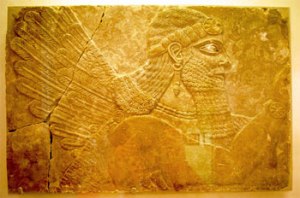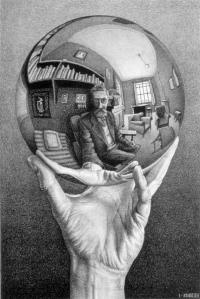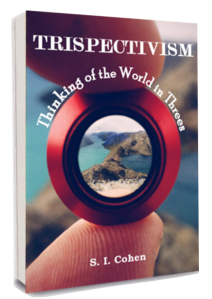 When I lived in Guatemala and attended to a retreat center called “Las Pirámides del Ka” I was recommended a book about an interesting perspective of life. The book concerned an ancient philosophy known as Hermeticism, which was formed from writings attributed to Hermes Trismegistus. One of the many websites devoted to Hermeticism states that “The Hermetists believe and teach that The All, “in itself,” is and must ever be Unknowable. They regard all the theories, guesses and speculations of the theologians and metaphysicians regarding the inner nature of The All as but the childish efforts of mortal minds to grasp the secret of the Infinite.” This passage refers to the Kybalion philosophy on Gnostic. The Kybalion is one interpretation of the Hermetist All (you can find a link here, chapter IV). I do not agree, however, to the idea that the writing is too complicated to comprehend and that a mortal mind cannot grasp the divine reflection (a quite repetitive notion in all religions). The difficulty it projects is that if the passage itself is said by mortal mind, who can actually know what is really is to grasp which makes is no different than many French philosopher that like to poster and sound too complicated in order to be appreciated (a future post about the subject is under construction).
When I lived in Guatemala and attended to a retreat center called “Las Pirámides del Ka” I was recommended a book about an interesting perspective of life. The book concerned an ancient philosophy known as Hermeticism, which was formed from writings attributed to Hermes Trismegistus. One of the many websites devoted to Hermeticism states that “The Hermetists believe and teach that The All, “in itself,” is and must ever be Unknowable. They regard all the theories, guesses and speculations of the theologians and metaphysicians regarding the inner nature of The All as but the childish efforts of mortal minds to grasp the secret of the Infinite.” This passage refers to the Kybalion philosophy on Gnostic. The Kybalion is one interpretation of the Hermetist All (you can find a link here, chapter IV). I do not agree, however, to the idea that the writing is too complicated to comprehend and that a mortal mind cannot grasp the divine reflection (a quite repetitive notion in all religions). The difficulty it projects is that if the passage itself is said by mortal mind, who can actually know what is really is to grasp which makes is no different than many French philosopher that like to poster and sound too complicated in order to be appreciated (a future post about the subject is under construction).

This citation certainly does not explain what this philosophy is, yet it relates to the driven passion of the unknown behind it. In Trispectivism, I do not refer to Hermeticism but more to my perception of what it can present to us in a more pragmatic point of view.
Today, after more than two millenniums, human interpretation regarding Hermeticism varies from a belief to an order or cult, and almost to a religion. You can read about it on the Internet and have your own interpretation, but what I wish to achieve by discussing it is to provide a background to what I refer to as Trispectivism. Actually, you do not have to understand Hermeticism and the theory of The All to comprehend the idea and application of Trispectivism; it is more than enough to know that it was an important milestone. Thus, by no means do I want to be considered a Kybalian, a Hermetist, or a member any kind of group, religion, or belief. As many new theories in life, trispectivism is a derivation, an interpretation in order to facilitate self-awareness by the means of an ancient, yet to be fully understood, philosophy.


